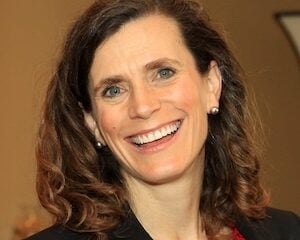University of North Carolina Television Q&A on equity in CPB and PBS formulas
1. Does UNC-TV believe that the CPB/CSG and PBS formulas should be linked?
Not necessarily. The issue is not formula linkage but formula fairness. UNC-TV believes that the industry should recognize that it is necessary to mitigate the extreme disparities caused by the formulas for some state networks.
Fortunately, the current CSG Review Panel recommendations begin to address the disparities for state networks.
2. Why does UNC-TV think the current formulas are unfair?
The unfairness of these formulas can be demonstrated in a variety of ways.
- CPB gives a base grant to public television stations. Generally, each station serving a community receives a base grant. However, as a state network, UNC-TV receives just one base grant even though we have stations serving 11 individual communities throughout the state. In FY2000 North Carolina ranked 48th out of 50 states in receipt of per capita CPB/CSG funds. The current proposals begin to address this inconsistency.
- PBS includes population in calculating what stations should pay, while CPB gives no credit to stations for the population served. The theory behind this is that most stations serving a large population base are major metropolitan community stations in an excellent position to have strong support in underwriting and membership and therefore well positioned to pay a larger PBS bill. However, the population factor creates an enormous gap for any non-major metropolitan licensee that serves a large population base.
The problem is extreme for state networks, because in most cases, the population base for a state network is spread out over a wide geographic area and the operating cost is higher.
3. Why has this created such a problem for UNC-TV?
In the 1990-91 fiscal year, UNC-TV’s CSG was $1.2 million–essentially the same as its PBS bill of approximately $1.2 million. In the 2000-2001 fiscal year, our CSG was $1.9 million and our PBS bill was $2.7 million, a difference of $800,000. Consider that CPB distributes approximately $160 million to public television stations while PBS charges stations $130 million for services. Whether a public television licensee uses its CPB/CSG funds to pay for its PBS costs is irrelevant. The CPB/CSG funds allocation and the PBS costs are part of the revenue/expense equation in every public television operating budget.
Why should a state network with significant additional expenses bringing service to a large state have to absorb an $800,000 shift in this revenue/expense equation? In order to serve the citizens of this state properly, UNC-TV needs to receive a fairer share of the federal funds and a fairer bill from PBS.
4. Why did UNC-TV go outside the industry (to members of Congress) to address the issues of unfairness inherent in the current formulas used by CPB and PBS?
Only a few state networks are profoundly impacted by formula unfairness. Working exclusively within the industry on this issue has been extremely difficult. Since a majority of stations benefit from the formula discrepancies, it is difficult, if not impossible, to build consensus for change.
Under federal statutes CPB is mandated with utilizing the CSG portion of its appropriation to “provide for the financial needs and requirements of stations in relation to the communities and audience such stations undertake to serve.” Some would argue that the current formulas are not consistent with this directive.
Why were North Carolina Representatives Burr and Price aware of the disparity? It is unrealistic to expect that they would not be aware of it. We are public institutions, and federal funding makes up a significant part of each of our budgets. At UNC-TV, repeated successful years of increased private fund-raising and little growth in services led to a very natural inquiry by our Board of Trustees asking where our increased funding was going. We could not—nor would we want to—conceal that paying $5.5 million to PBS over and above what we received in our CSG in ten years eroded our significant fund-raising success and hampered our ability to serve a large state.
UNC-TV believes it is appropriate for members of Congress to raise questions about the basic principles of public television formulas. The interest of Representative Burr, Representative Price, and other members of Congress in this issue has led to comments from some in the public television community that a few general managers are going “outside the family” to solve the problem.
As colleagues in an industry, we are interdependent. If the rules, systems, and formulas tremendously disadvantage a small group of us, it becomes impossible to maintain a spirit of “family”—of camaraderie, teamwork, and trust—unless there is an attempt to address the plight of the minority, particularly the members of the minority most unfairly treated.
Proposals from the current CSG Review Panel clearly demonstrate its willingness to look at the concerns of a minority group of public television licensees.
5. Shouldn’t we tell Congress that this is primarily a PBS formula problem?
That line of reasoning assumes that Congress compartmentalizes our national organizations. If our industry has formulas that are unfair, then Congress is not really interested in which national organization is driving the unfairness as much as they are interested in its resolution. The view from Congress is that the formula problem is an industry problem that should be addressed by the industry, and if it is not addressed by the industry, then the next natural question from Congress is why not? This entire issue has everything to do with congressional concern about fairness.
6. Why did Representative Burr use the DTV funding authorization in order to get Congress to dictate a change in the CPB/CSG formula?
In May 2001 Representatives Burr and Price, aware of the extreme unfairness of the current formulas for some licensees, sent an inquiry to one of the national organizations asking for clarification and explanation of the formulas. They had received no response to that inquiry when Representative Burr was asked in late June to help authorize the DTV funding attached to the Emergency Supplemental bill. Before considering the DTV authorization issue, he requested an answer to his May inquiry.
Having subsequently been told that the problem would be addressed, he is now waiting to learn the specifics on how it will be addressed.





